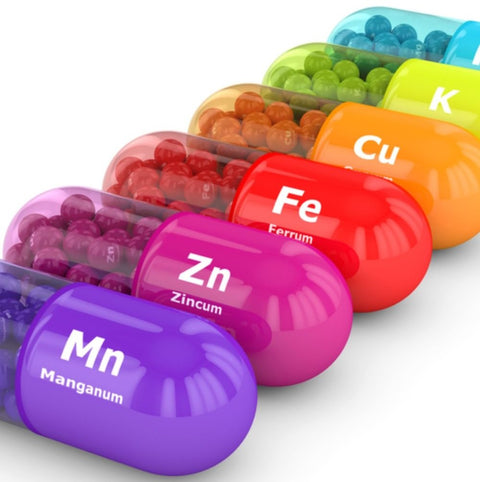Micronutrients
Vitamins are micronutrients that are necessary for metabolism and vital in our diet. The importance of vitamins is directly related to health, since it has been shown that the appearance of certain diseases is generated from the lack of certain vitamins. Additionally, vitamins can help prevent some chronic diseases.
Some vitamins are synthesized or produced directly by our body, however, they are not sufficient to cover the body's needs, so it is necessary to include them from foods that contain vitamins.
There are 13 essential vitamins that are required for the body to function properly, which are:
Vitamin A
Vitamin C
Vitamin D
Vitamin E
Vitamin K
Vitamin B1 (thiamine)
Vitamin B2 (riboflavin)
Vitamin B3 (niacin)
Vitamin B6 (pyridoxine)
Vitamin B12 (cyanocobalamin)
Pathothenic acid (B5)
Biotin (B7)
Folate (folic acid or B9)
Classification of Vitamins
Vitamins are generally classified based on solubility, and thus they are divided into:
Fat-soluble. They are soluble in lipids (not in water) and are transported, in most cases, in the fat of foods. Due to their solubility, they can accumulate in the fatty deposits of animals. In addition to vitamins A and D, this group also includes vitamins E and K.
Water-soluble : These are vitamins that are soluble in water. These include vitamins from the B group and vitamin C. This group of vitamins quickly loses its nutritional value, as they are destroyed during cooking or by the action of sunlight.





Comments (0)
There are no comments for this article. Be the first one to leave a message!